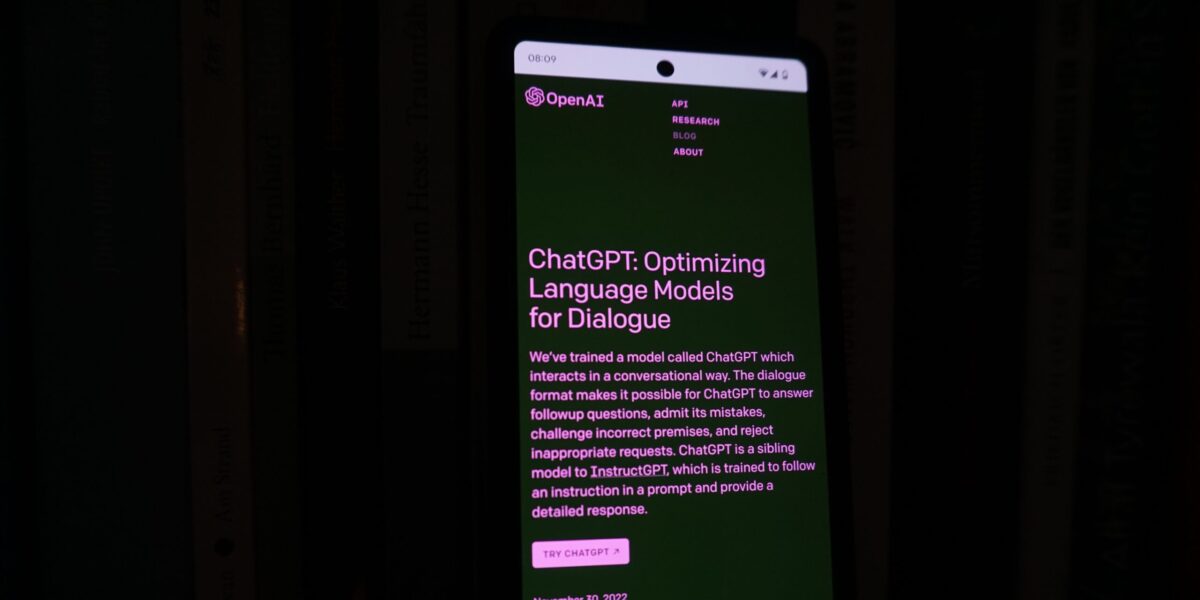Artificial intelligence (AI) has created revolutionary changes in every sphere of life, writing is no exception, and without going into details of AI’s amazing intelligence, and exceptional competence, if we look at it from a writer’s view, we find ourselves in a scholarly predicament.
AI is posing a challenge to those who write for books, magazines, newspapers, television channels, and all other print and online publications, as the source of intellectual creativity is being shifted from human to machine.
We can define AI as a process of transferring human intelligence to computers as a transformative force to weaving its way into the fabric of society. This transfer of human intelligence to computers needs to be thoroughly discussed, scientifically analyzed, and logically understood to foresee the future of human intellect.
Those who have privilege to know have the duty to act. – Albert Einstein.
The Canadian creator of AI, Geoffrey Hinton of the University of Toronto, who recently won the Noble Prize in Physics for his incredible work, is also warning about the dangers of AI to human civilization and the concern they could become smarter than human beings.
(I tried to ask him a little more about the danger of AI, unfortunately due to his current commitments and limited availability, he was unable to accommodate additional meetings and inquiries.)
Normally, our day begins with morning news and newspapers’ headlines, and behind them are the minds who write editorials, opinion pieces, news commentaries and other columns that help form public opinions on different issues.
Media people and writers are astonished with AI’s immense creativity skills, and inventiveness which have also raised many questions on thought creation, opinion formation, and the contribution of human intelligence to society.
Opinion pieces are useful writing tools for sharing our perspectives on complex topics and researching various sources and authors to support our ideas and statements. We focus on the relevance of the topic, use formal language, check the facts and arguments for inconsistencies, and maintain clear, concise language to form honest opinions .
Opinion writer Victoria Duncan of University of Victoria, who helps organizations manage the “people component “of their strategic business plans, says that her personal tell for AI is that it always sounds like a bad college essay. Human writing should have purpose and immediacy; it should feel like the writer cares what you think.
The other issue with AI is, human writers try their best to use the most authenticated and reliable information from trustworthy sources but now the reliability of information has also become doubtful. It’s hard to separate fact from fiction. The internet is flooded with false information, and AI’s sourcing and authenticity of information is generally poor.
The Globe and Mail’s current newsroom guidelines state that journalists and editors may use ChatGPT or other artificial-intelligence tools for initial research, brainstorming, or interview preparation. However, they must treat ChatGPT as they would a tool like Wikipedia or a tip from a news source. They must always independently verify any facts presented.
Most of the opinion writers use systematic approach, ethics and accountability standards to keep the line between fantasy and reality. The text written by a real, live person who is capable of critical thinking and understanding the nuances of the human mind are different from a computer’s text.
The way that AI approaches writing, as a formulaic combination of the stored information, is not the same as authors taking inspiration from work that came before them after reading books, literature, magazines and newspapers etc.
Writing is a complex process, which involves expression, knowledge, mood, style, surroundings, and time of the day. It is hard to understand it fully. That is because the human experience is so vastly different for everyone, and this truth is present in writing. Every writer puts a piece of themselves into their work, whether it is purposeful or not. No two people think in the exact same way.
Opinion pieces written by real human beings come from the natural creativity of the human mind; can AI replace that?
When I started writing for the Toronto Star, the editor advised me “When you feel your piece is beautiful and ready to go, keep it overnight, and read it again in the morning, you may find many flaws in flow and thought, which could be improved with a fresh mind, the next morning”. I always found this advice very useful and practical.
AI cannot and should not ever replace human creativity, ingenuity, and insight, it cheapens the original creator’s value. It may look or sound perfect, but it’s lacking the human touch that gives creativity its soul?



